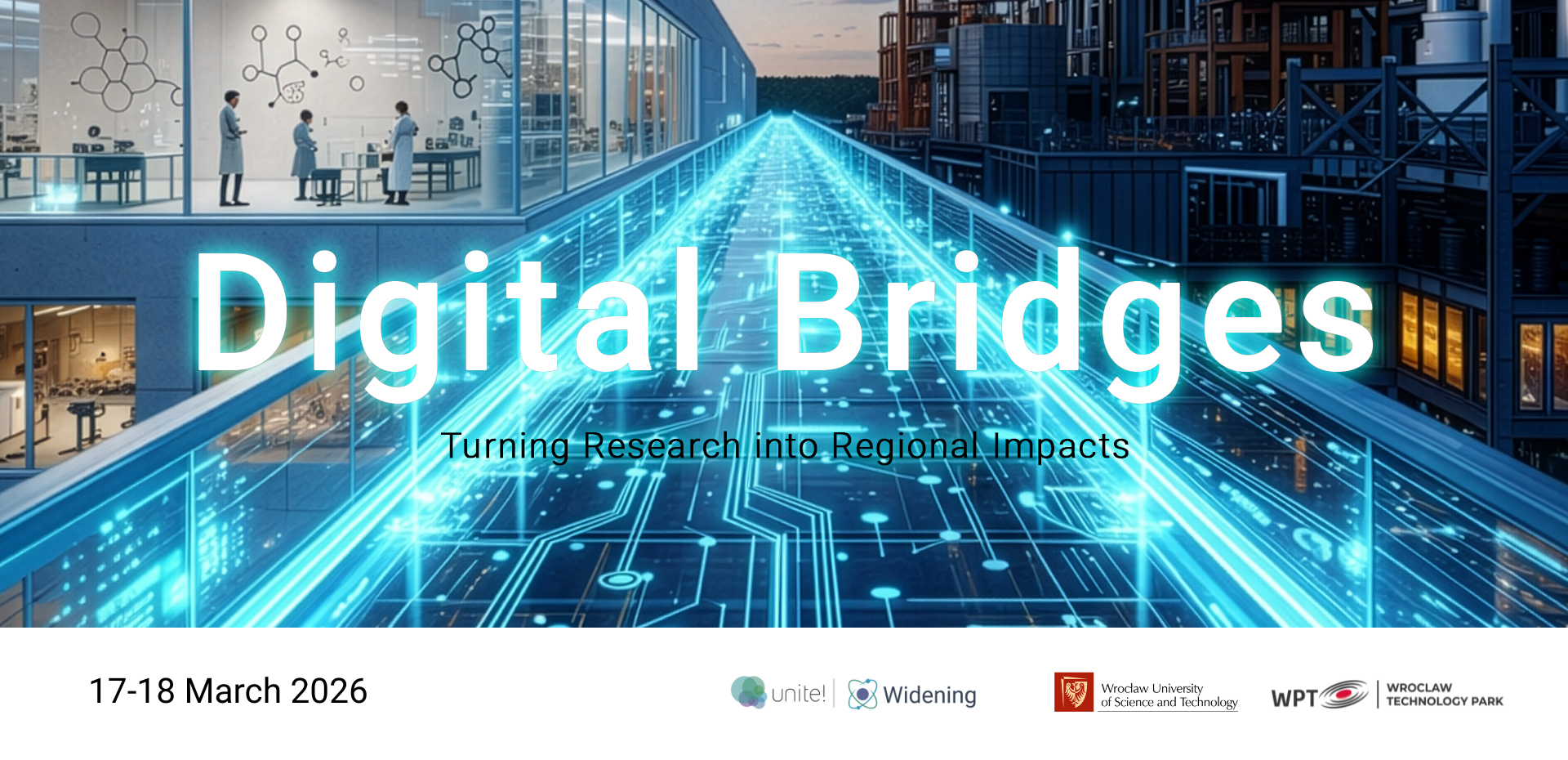The Unite! Widening project is proud to announce the definition of four Strategic Research Areas, developed through a rigorous analysis of institutional strengths, research performance indicators, and alignment with EU policy goals. These areas not only reflect the most promising domains within our partner universities—ULisboa and WroclawTech—but also support Europe’s broader ambitions for sustainable growth, innovation, and resilience.
Each strategic area has been chosen based on data from publications, patents, EU project involvement, and industry collaborations, highlighting fields where Unite! partners show strong potential for impact.
Health & Biotech
Includes: Medical Sciences, Biomedical Engineering, Biotechnology
Coordinated by: ULisboa
Health & Biotech stands at the forefront of Europe’s Horizon Europe programme, particularly within the Health Cluster. This area supports transformative advances in personalized medicine, biotechnology, and digital health, enhancing Europe’s capacity to respond to public health challenges.
The Unite! Widening universities show exceptional performance in this domain, with high levels of publications, funded projects, and experimental infrastructure. Through this strategic focus, we aim to bolster collaborations with health sectors and contribute to a more resilient and competitive European health system.
Urban & Resources Sustainability
Includes: Climate-resilient and inclusive cities, clean energy, water, environment
Coordinated by: WrocławTech
Urban sustainability is central to the EU Green Deal and Climate-Neutral and Smart Cities Mission. This area addresses challenges linked to urbanization, energy security, and climate adaptation.
Unite! Widening partners bring strong expertise in environmental engineering and geosciences, with active company partnerships and innovation projects. This area supports the creation of more inclusive, sustainable, and climate-resilient urban environments—essential for achieving the EU’s climate neutrality goals.
Circular Economy & Materials
Includes: Circular economy, green chemistry, advanced materials, nanotechnology
Coordinated by: WrocławTech
This strategic area underpins the EU’s transition to a low-carbon, resource-efficient economy. It focuses on sustainable manufacturing, smart materials, and environmental engineering innovations.
Unite! universities show strong performance in patents, industry contracts, and funded EU projects within this field—especially in chemistry and materials science. By driving forward green technologies and sustainable design, this area will play a vital role in reshaping Europe’s industrial future.
Digital & Autonomous Technologies
Includes: Robotics, Automation, Digital Systems
Coordinated by: ULisboa
Digital technologies are critical to EU digital sovereignty and the success of Industry 4.0. This area supports innovations in AI, automation, and robotics to improve productivity and sustainability across sectors.
Our universities demonstrate high performance in patents, EU funding applications, and collaborations with industry, especially in automation and electronics. This strategic focus enhances Europe’s competitiveness and supports the integration of digital solutions for the green transition.
Why These Areas Matter?
These four strategic areas were defined to:
- Leverage existing strengths at ULisboa and WroclawTech
- Align with EU priorities in sustainability, health, and digitalization
- Promote innovation, collaboration, and international competitiveness
The Unite! Widening project will continue to support cross-border, cross-sector partnerships in these domains, fostering a robust ecosystem of excellence and impact.


